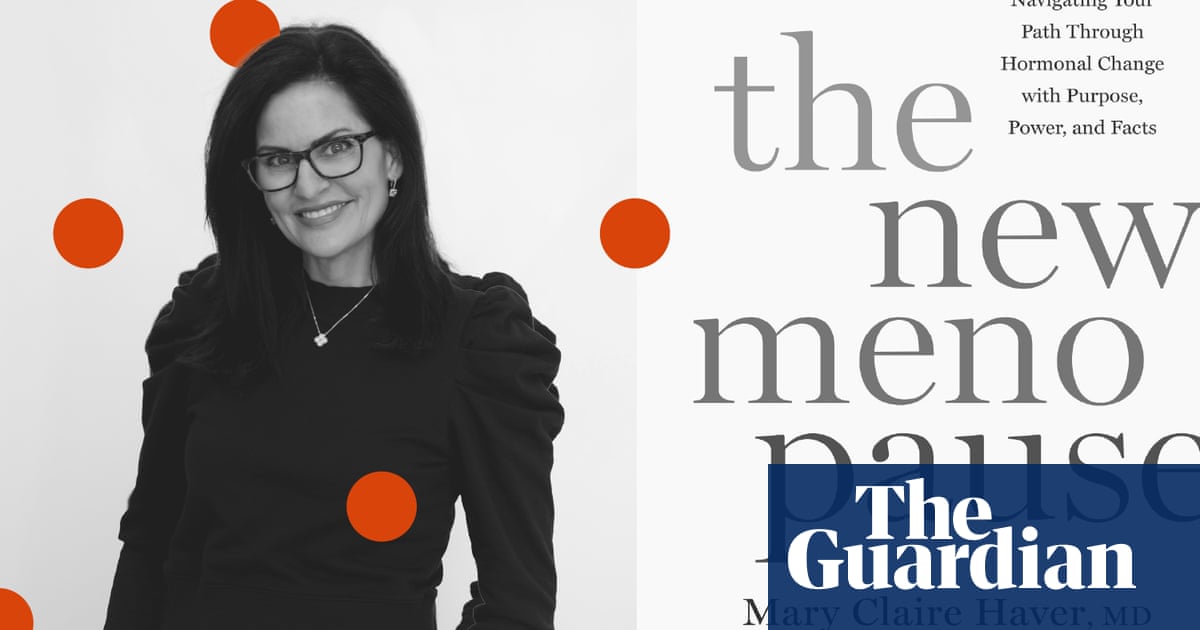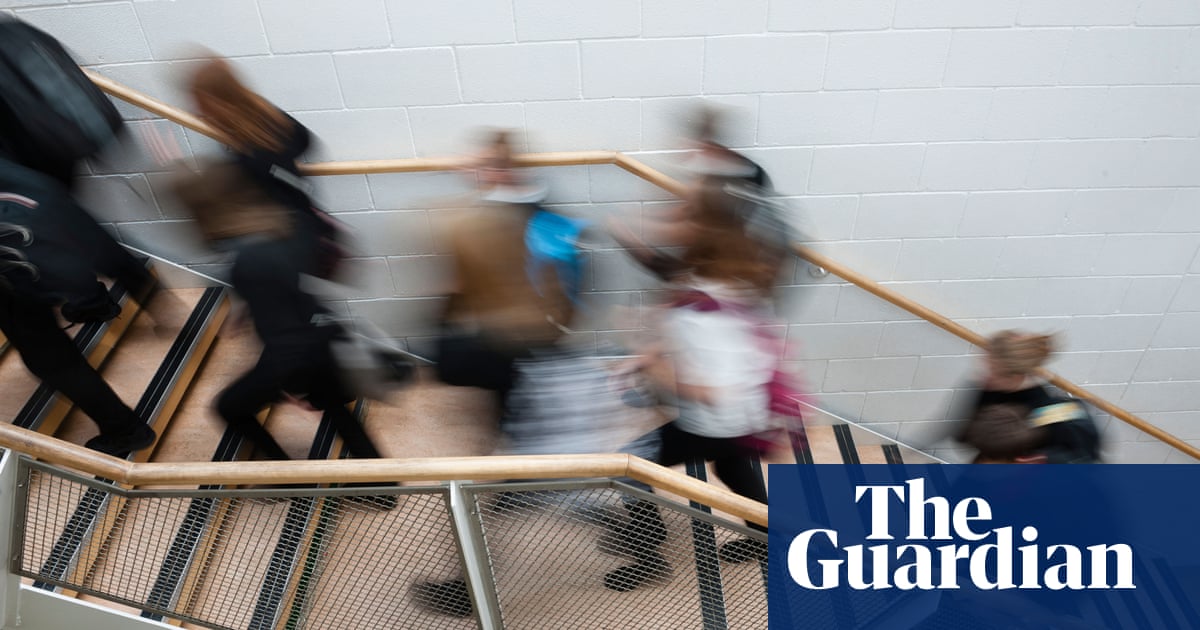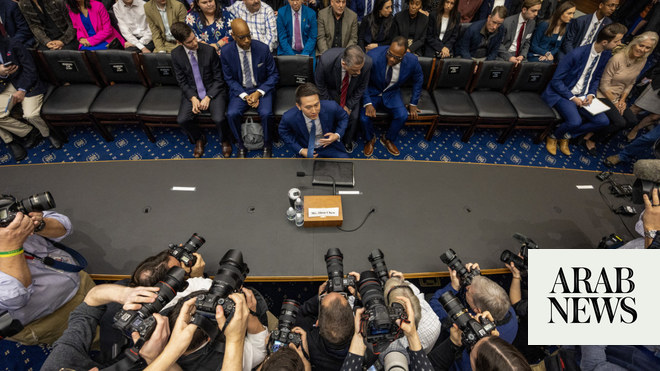
If you are a woman born in the 70s who has Googled “menopause” on an iPhone, you probably know who Mary Claire Haver is. Ever since the physician pivoted from focusing on her Houston area OB-GYN practice to menopause care in 2021, the fast-talking Texan has been flooding social media with advice about navigating the maladies of midlife.
With a following of 4 million across a handful of platforms, she has tackled menopause from seemingly every angle, including supplements, sleep, nutrition, exercise (she’s been going through a weighted vest phase) and, of course, hormone replacement therapy, commonly called HRT – though Haver prefers to say “MHT” (menopausal hormone therapy).
“I wanted to do comprehensive menopause care with nutrition and everything,” she said. “So I took my girlfriends out to dinner and was like, Do you think this will work? Would you come to see me?” The response was a resounding yes.
Some doctors, especially in the US, are reluctant to prescribe hormones to patients in perimenopause, the decade-or-so-long phase before menstruation ends for good. The best-known symptoms are brain fog, weight gain and insomnia, and a program of estrogen, progesterone and sometimes testosterone can help offset them. But Haver is a walking encyclopedia on MHT’s preventive benefits. She says hormones – generally taken orally or via a transdermal patch – can protect our hearts and help stave off osteoporosis and thinning hair, which are commonly associated with menopause.
Her latest book, The New Menopause, is a horrifyingly engaging text. One section, an A to Z guide to the many side-effects of hormonal changes, is no fewer than 101 pages long. Haver spoke with the Guardian about mental and physical side-effects of perimenopause and menopause, and why so many of her medical peers tell their female patients “it’s all in your head.”
I have never written “Yikes!” in the margin of a book so many times. And I have you to thank for my new knowledge of “armpit fat”.
It’s just part of a cascade of things. A lot of [the menopause symptoms covered in the book] were [shared with] me by my followers on social media. When 10,000 people ask you about frozen shoulder or ringing in their ears or vertigo, you listen. And the more I would dig, the more I would find somebody out there who had found a correlation between patients who are on [hormone replacement therapy] and have lower incidences of those things. No one’s talking about this and connecting the dots.
What do you think a world where all men go through menopause would look like?
Medicine was built for men, sadly. I don’t want to say that there was this ultimate plan to subjugate women in the medical profession, but they were the default, right? And anything that doesn’t happen to a man is abnormal, right? This whole mindset of how [women] are little men with breasts and uteruses has driven medical science research decisions for perpetuity.
Women live so long, but 25% of our lives are in poorer health than our male counterparts. So we’re living horrible, painful, very sick lives. We want to die like men, but that’s not what’s happening. I just want to drive my truck and have a heart attack one day, you know. Why do we have to lay in a bed with dementia and a fractured hip? That’s the path we’re on.
HRT seems to be so much more popular with my friends in the UK than my friends in the States.
In the UK it’s not perfect, but we are far behind the UK. The recognition and treatment of menopause there is about double what it is in the US.
How did you end up becoming a social media phenomenon?
I was playing around a little bit on Facebook when I was promoting [her previous book] The Galveston Diet, which is about nutrition and menopause. It was going pretty well. But then it was Covid, and I was home with the kids, who were teenagers at the time. They were like, Mom, you’ve got to do this TikTok thing. I was like, “Dancing on social media? That’s ridiculous.” And then they showed me other doctors who were dancing and teaching. I was like, Well, I can do that. I did my first video, went to bed, woke up and had 10,000 views.
But you’re not dancing in the videos that I see.
I started out dancing and pointing [at text], and then I realized people want to hear me talk, not dance. I got really good at doing 30-second little blips on important information about menopause. I read all the responses in the comments, and it’s just been growing and growing from there.
So your followers are leading the dialogue.
Ten thousand women are not lying to me. They’re not making this up. I’m trying to arm people with information so that they can advocate for themselves. I can’t be everybody’s doctor. I’m just one girl in Texas. But I can teach you how to talk to your doctor and help you figure out what to say.
Why is HRT still so controversial? Many doctors won’t consider it. I’ve had two tell me to go peddle my papers.
This is what I call the old menopause, versus the new menopause. With the old menopause, it’s the same old researchers who are just trotting out their tired data. They are all PhDs and they sit in labs and they never see patients and they just crunch data.
I’m like: I’m not going to let you hurt women. I’m done. I’m going to use my power to tell you guys no, and we’re not going to stand for this. We’re going to keep giving [women] hormones.
In your book you outline the manifold benefits of hormone therapy, but what are the downsides?
The biggest pain in the ass is unscheduled bleeding. You’ll get this weird spotting. It’s so annoying. If you present this habit, we have to switch doses. Your breasts might get tender, or you might get bigger headaches that may trigger some migraines. There is an increased risk of blood clots if you do oral estrogen. But the [reputed] risk of breast cancer with estrogen alone is not there.
There is an increased risk of stroke. So in the case of people who have a family history of stroke, we have a conversation about other risk factors for a stroke and how to limit those.
You get in cars, you get in planes, we all do things that are risky. Some people drink alcohol. But to allow your whole health decision to be determined by the risk of breast cancer is ridiculous.
Right, in your book you say that the risk of breast cancer that comes with taking hormones is overblown, and people think it’s 75% higher but it’s actually something like 0.04%.
There’s relative versus absolute risk. And we’re weaponizing these guidelines against women, and we’re weaponizing statistics against women and not allowing them to make an informed choice. You may not choose to use hormone therapy, and I respect that. It’s your body. But you deserve to know what the risks and benefits are.
You also talk a lot about lifestyle choices, as well as diet and exercise. What’s your top tip?
You’re probably not eating enough protein. Eat more protein and fiber. And for exercise, don’t just do cardio. We need to be lifting weights. We’ve spent our lives in the pursuit of “fitness”, and we probably undercut our muscle and bone strength.
You’ve been posting a lot on TikTok about your weighted vest.
I wear it all the time. At home, I do the dishes with it. I have a walking desk and I’ll put it on for that. It’s like a hack. It’s easy.
What is the first sign of perimenopause?
Well, perimenopause is when you’re running out of eggs. The system that would make you ovulate each month is starting to break down. The brain is having to work harder to talk to the pituitary [gland], which is sending more hormones down to the ovary and the whole thing’s going crazy. You’re in hormonal chaos. And we can put a Band-Aid on that. I can’t undo your menopause but we can calm things down by giving you a little estrogen in the background to shore you up for those big dips.
Is there anything that the treatments that you tend to prescribe can’t help with?
We’re still ageing. We’re not going to stop ageing, but we see an acceleration of disease states when we go through the transition [of menopause], like insulin resistance and diabetes. We lose 30% of our collagen, and estrogen [helps to prevent this]. But once you develop those wrinkles, it’s probably not going to unwrinkle them, and once you get heart disease, it’s not going to undo that. It’s your body’s time away from estrogen where the problem starts.
How are you seeing people’s attitudes changing?
I think the boomers are pissed. They are kind of out of the window of opportunity [to start HRT]. So they’re furious. They’re saying, “Why didn’t we know?” They’re watching their mothers fall and break their bones and go through these long periods of decline, and they’re like, “Oh, my God, is it too late for me?”
I can’t help but think that the next wave of doctors will be more educated and open to therapies.
I think menopause should be optional. I want to age like a man who doesn’t go through menopause. A typical man’s testosterone declines about 1% a year until death. The latest research is really looking at extending the life of the ovary. It’s too late for me, but [people are looking at] intervening at a younger age, either through removing an ovary and storing it for a bit and putting it back in at a certain age, or certain medications that will slow down the ageing process. Our ovaries age twice as fast as any other organ in our body.
Sadly, we are a decade or two away from you being able to confidently walk into your primary care doctor’s office and having an informed conversation about your menopause journey. We’re not educating our healthcare providers. So the onus is on us to educate ourselves.
I have heard that Estradiol, the vaginal cream that a lot of women are given, is the best thing for skincare. Apparently people are using it on their face to look younger.
Absolutely. There were studies that looked at using the 0.1% Estradiol and the 0.03% on the face and they found no systemic absorption. They checked blood levels – there’s no danger of it getting into your bloodstream. It stays in the skin, and they saw improved collagen and elasticity in the skin. I use it. I’m telling my patients, just take a little bit. Mix it with your moisturizer and put it around your eyes, where the skin is thin.
You’re a rock star on social media. Do you have any advice for people looking to break out on that front?
I talk every morning with no makeup in my pyjamas and with a cup of coffee. And now I’m [on book tour and] doing all these fancy events, I’m apologizing to the audience, like: do you recognize me? I had Botox for all this. I had my hair colored. I have fake nails.












